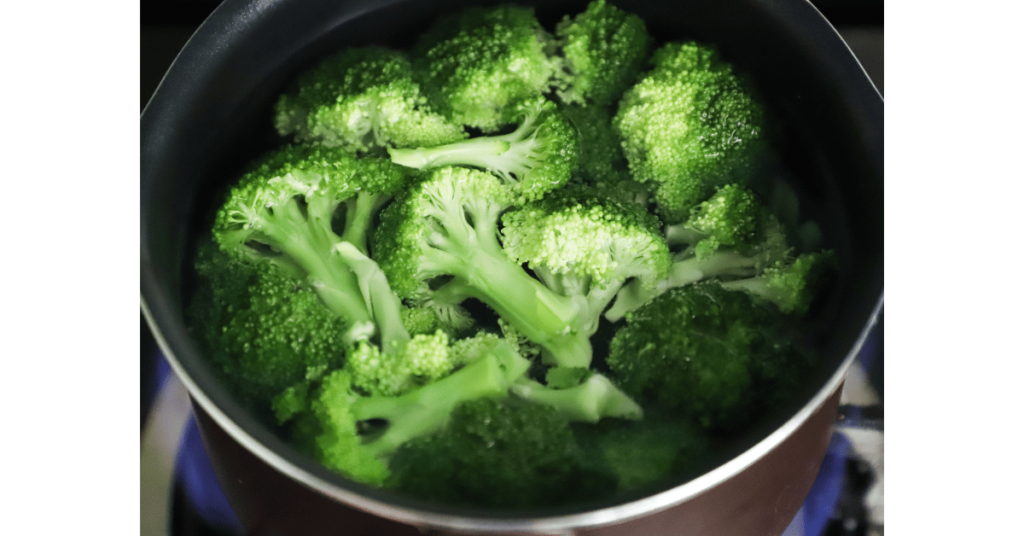The Best Plant-Based Foods for Menopause and Perimenopause

This article comprehensively reviews the best plant-based foods for menopause and perimenopause.
It includes their nutrients, potential effects, and how to add them to a healthy diet.
But wait
What is menopause and perimenopause?
Taking Charge of Your Health During Menopause and Perimenopause
Menopause is the natural end of your reproductive years. It usually arrives in your 40s or 50s.
But before you reach that point, you might encounter perimenopause. It is a transition lasting several years that brings its own set of changes.
Both menopause and perimenopause can bring a wave of unwelcome symptoms. These include hot flashes, night sweats, sleep problems, mood swings, and vaginal dryness.
These symptoms can disrupt you. But you can manage them and navigate this natural shift in your health.
One powerful tool?
Your diet!
Studies have shown that a plant-based diet is full of vital ingredients.
It can significantly help during menopause and perimenopause.
Can following plant-based foods meet the nutritional needs of menopausal women?
Plant-Based Foods for Menopause and Perimenopause
During menopause and perimenopause, your body adjusts to fluctuating hormone levels.
Some plant-based foods can offer powerful support. They provide vital nutrients and compounds to help manage many common symptoms.
Let’s dive into these superstars and explore how they can benefit your journey:
Soybeans and Tofu
These champions are full of isoflavones. They are a type of plant compound with a structure like estrogen.
They may help regulate hormones.
These compounds could reduce the number and severity of hot flashes.
Hot flashes are a key menopause symptom.
Soybeans are versatile and delicious!
Enjoy the whole (edamame) roasted. Or, add tofu crumbles to scrambles or stir-fries. They make a satisfying, protein-packed meal.
Flaxseeds

Pexels/Eva Bronzini
Remember to consider these tiny seeds!
Flaxseeds are also a great source of plant-based compounds called lignans. Lignans offer benefits similar to isoflavones.
Studies suggest they may help with hot flashes and other menopausal symptoms.
Ground flaxseeds are easy to add to your diet.
Sprinkle them over oatmeal or yoghurt, or blend them into smoothies for a nutty flavour and a boost of lignans.
Cruciferous Vegetables

Load your plate with broccoli, cauliflower, Brussels sprouts, and other cruciferous veggies.
These powerhouses contain indole-3-carbinol. It’s a plant compound that may help with estrogen metabolism. It can balance hormone levels during menopause.
Roasting brings out their natural sweetness.
Add them to stir-fries and soups, or enjoy them raw with a healthy dip.
Next, we’ll look at more powerful plant foods.
We’ll also give more tips on optimizing your diet for a smooth menopause transition!
Additional Tips for a Plant-Powered Perimenopause and Menopause Journey
The superstar plant-based foods mentioned earlier are a great addition to your diet.
Here are some extra tips to stay healthy during menopause and perimenopause:
Calcium and Vitamin D for Bone Health
As you enter menopause, your estrogen levels decline. This decline can increase your risk of osteoporosis, a condition that weakens bones.
Plants packed with calcium include leafy greens, kale and collard, and fortified plant milks.
Some mushrooms contain Vitamin D, which is crucial for calcium absorption.
Consider asking your doctor about a vitamin D supplement. Do this if you don’t get enough sunlight.
Staying Hydrated
Dehydration can sometimes mimic hot flashes, leaving you feeling flushed and uncomfortable.
Drink plenty of water throughout the day. You can also use Herbal teas to stay hydrated and add a touch of flavour to your routine.
Manage Stress
Stress can worsen menopausal symptoms.
Consider relaxation techniques.
These include yoga, meditation, and deep breathing. They can help you stay centred and manage stress well.
Remember
Every woman’s experience with menopause is unique.
These tips and diet suggestions are a starting point. Finding what works for you is crucial.
Your doctor or dietitian can help you make a plan just for you. This plan will help you navigate menopause and feel your best.
Sample Meal Plan for a Plant-Powered Menopause & Perimenopause
Breakfast
Soy Yoghurt Parfait
Layer Greek-style soy yoghurt with berries. Sprinkle with ground flaxseeds and drizzle with nut butter. This recipe makes a protein—and fibre-packed breakfast.
Lunch
Quinoa Salad, Roasted Vegetables and Tahini Dressing
This protein-rich salad combines quinoa with roasted broccoli, cauliflower, and chickpeas. Toss everything with a flavorful tahini dressing for a satisfying and nutritious lunch.
Snack
Edamame and Carrot Sticks with Hummus
Edamame provides plant-based protein and isoflavones. Carrots add a satisfying crunch. Hummus offers a creamy dip with healthy fats and fibre.
Dinner
Tofu Stir-Fry with Brown Rice
Marinate tofu in a tasty sauce. Then, stir-fry it with colourful vegetables, like bell peppers, snow peas, and mushrooms. Serve it over brown rice for a complete and satisfying meal.
Snack
Apple Slices with Almond Butter
This classic combination provides a satisfying balance of sweetness, healthy fats, and protein.
This meal plan is just a sample. You can be creative with ingredients based on your preferences and dietary needs.
You can create many tasty, healthy, plant-based meals. They support your well-being during menopause!
Lisa’s Plant-Powered Menopause Journey
Lisa is a vibrant 52-year-old yoga instructor. She started having hot flashes and night sweats a few years ago.
These symptoms disrupted her sleep. They also sapped her energy in her yoga classes. Lisa felt frustrated and unsure where to turn. So, she decided to explore natural ways to manage her menopause symptoms.
Through her research, Lisa learned about the possible benefits of a plant-based diet, including that it could help with menopause. Intrigued, she started incorporating more soybeans, tofu, and flaxseeds into her meals.
She also tried to include plenty of cruciferous vegetables. These include broccoli and cauliflower.
Within a few weeks, Lisa began to notice a positive change.
The intensity and frequency of her hot flashes decreased significantly. She also slept better, which boosted her energy and mood.
Lisa’s experience is a reminder that a well-planned plant-based diet can be a powerful tool. It can help manage some common menopause symptoms.
Here’s what Lisa has to say about her journey:
“I never thought that changing my diet could make such a big difference!
Since embracing a more plant-based approach, I have felt so much better. The hot flashes are much more manageable, and I have my energy back. Exploring new recipes and discovering delicious plant-based meals has also been fun.
Lisa’s story is just one example.
Eating a plant-based diet can give women power. It can help them navigate menopause with more confidence and well-being.
If you’re looking for natural ways to manage menopause symptoms, try using plants in your diet!
Conclusion
Menopause is a natural transition. But that doesn’t mean you have to suffer its symptoms.
Use the best plant-based foods and these tips for menopause and perimenopause. They will help you take charge of your health and feel your best during menopause.
Remember, every woman’s journey is unique.
Feel free to experiment and find what works best for you.
Ask your doctor or a dietitian for personalized advice. Also, check out the many tasty plant-based recipes online and in cookbooks.
See this time as a chance to prioritize your well-being. Learn the power of plants to nourish your body. They support you in and after menopause.
With planning and exploration, you can create a plant-powered path. It leads to a healthy and vibrant menopause!
